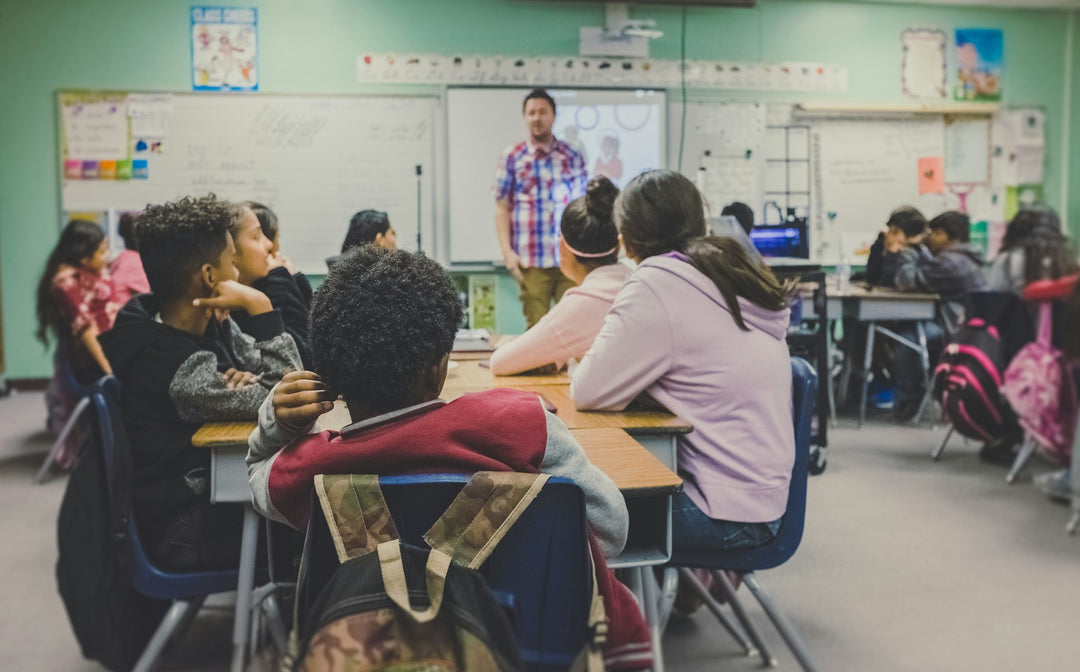The Montessori Approach to Developing Practical Life Skills for Toddlers

Practical life skills are an integral component of Montessori education, emphasizing the development of independence, autonomy, and self-confidence in young children. These skills encompass everyday tasks and responsibilities that encourage toddlers to actively participate in their own care, preparing them for a transition to more advanced academic and social activities.
In this article, we'll explore the significance of practical life skills in Montessori education and share engaging, hands-on activities that you can introduce to your toddler to support their development in this area.
We'll begin by discussing the core principles of Montessori practical life education and the foundational skills it seeks to cultivate. Next, we'll delve into various practical life activities for toddlers, such as pouring, spooning, and dressing, and offer step-by-step guidance on how to introduce these tasks in an age-appropriate, engaging manner. Additionally, we'll examine the role of caregivers in supporting the development of practical life skills, and provide tips on creating a supportive, Montessori-inspired home environment.
1. Understanding the Core Principles of Montessori Practical Life Education
Montessori practical life education embodies several key principles focused on fostering independence and skill-building in young children:
A. Learning Through Experience: Montessori practical life activities provide toddlers with real-life, hands-on experiences that allow them to develop essential skills and gain a deep understanding of their abilities.
B. Pursuit of Independence: The Montessori approach encourages toddlers to be independent and self-sufficient, empowering them to engage with their environment and actively participate in their own self-care.
C. Encouraging Concentration and Coordination: Practical life activities promote concentration and fine motor skill development, laying the groundwork for academic success, and fostering a sense of accomplishment.
D. Fostering Responsibility and Self-Confidence: By teaching children to take responsibility for their actions and develop a sense of order, Montessori practical life education instills self-confidence and promotes inner discipline.
2. Introducing Practical Life Activities for Toddlers
There are numerous practical life activities to introduce to your toddler that foster independence while reinforcing essential skills:
A. Pouring: Teach your child to pour liquids, developing hand-eye coordination and concentration. Begin with a small pitcher filled with water, rice, or beans, and gradually increase the complexity of the task, incorporating funnels and different-sized containers.
B. Spooning: Provide opportunities for your toddler to practice spooning small objects, such as beans, rice, or pasta, from one bowl to another. This activity enhances hand-eye coordination, concentration, and fine motor skills.
C. Dressing: Encourage your toddler to engage in daily dressing activities, such as putting on socks and jackets, lacing shoes, or fastening buttons and zippers. These skills help develop independence, concentration, and coordination.
D. Food Preparation: Engage your child in age-appropriate food preparation tasks, such as slicing fruit with a toddler-safe knife, spreading jam on toast, or stirring ingredients in a bowl. These activities foster independence and instill a sense of pride and accomplishment.
3. Tips for Supporting the Development of Practical Life Skills at Home
Incorporating Montessori practical life activities into your home environment is essential for promoting independence and autonomy:
A. Provide Child-Friendly Materials: Equip your toddler with child-sized tools, utensils, and containers that are easily accessible and suitable for their developing motor skills.
B. Create a Task-Oriented Environment: Organize your home in a way that encourages your toddler to be involved in daily tasks, such as setting the table or putting away toys.
C. Encourage Self-Care: Offer opportunities for your child to engage in self-care practices, such as brushing their teeth, washing their hands, and combing their hair.
4. The Role of Caregivers in Montessori Practical Life Education
As a parent or caregiver, you play a vital role in supporting your child's development of practical life skills:
A. Provide Guidance and Support: Encourage your child to participate in practical life activities and offer guidance and support as needed, ensuring they feel confident in their abilities.
B. Model the Desired Behavior: Take the time to demonstrate the specific steps and techniques required for each activity, allowing your toddler to observe and then practice independently.
C. Patience and Encouragement: Be patient and offer praise when your child successfully completes a task, and provide reassurance and encouragement when challenges arise.
5. Creating a Montessori-Inspired Home Environment for Practical Life Tasks
To support your toddler's development of practical life skills, consider creating a Montessori-inspired home environment:
A. Designate Child-Friendly Spaces: Allocate specific areas in your home that cater to your child's needs and abilities, such as a low shelf for utensils or a step-stool for handwashing.
B. Simplify and Organize: Maintain a tidy, clutter-free environment that promotes order and self-discipline, enabling your child to focus on specific tasks with minimal distractions.
C. Foster Independence: Encourage independent exploration by providing child-friendly materials and activities that your toddler can engage with autonomously.
Final Thoughts
The Montessori approach to practical life education empowers toddlers to develop essential skills and self-confidence. By understanding the principles of Montessori practical life and incorporating age-appropriate activities into your child's daily routine, you can actively support their growth and development.
Open the door to a world of independence, autonomy, and achievement for your toddler with the invaluable skills learned through Montessori practical life education. If you need more Montessori products for your child, explore our collection at The Topponcino Company!












